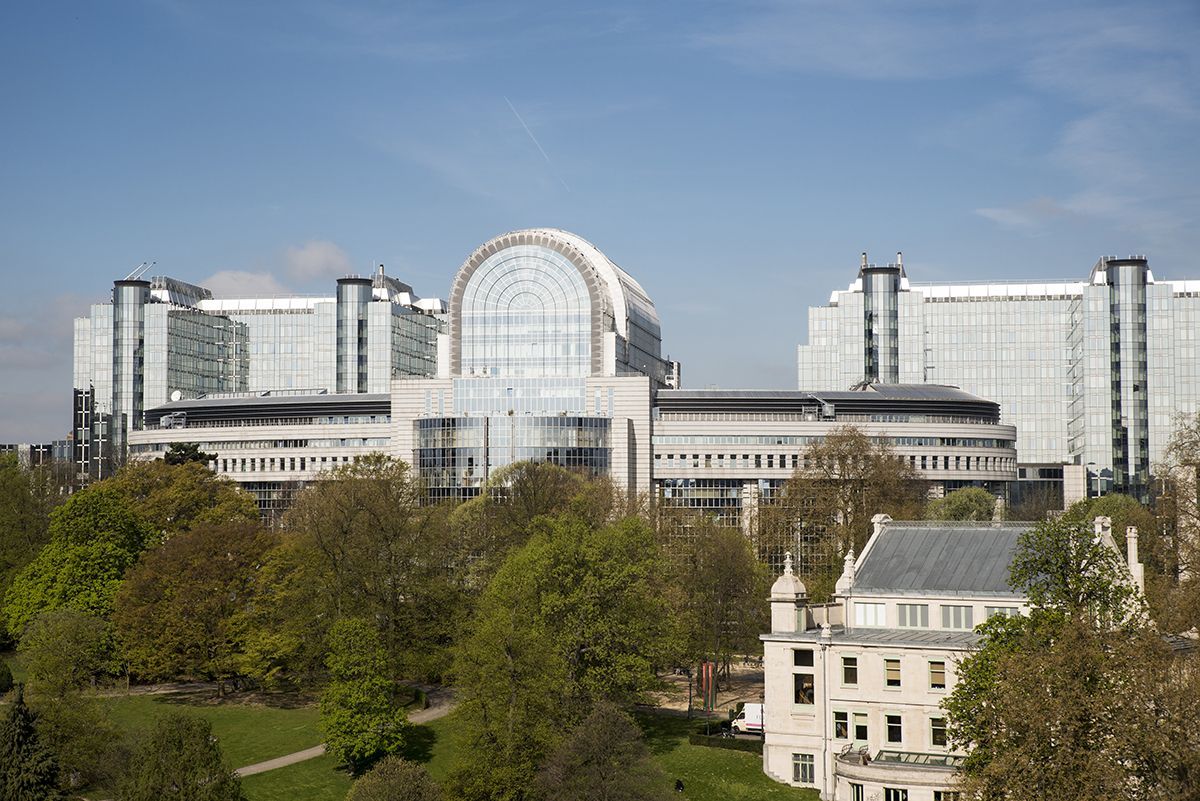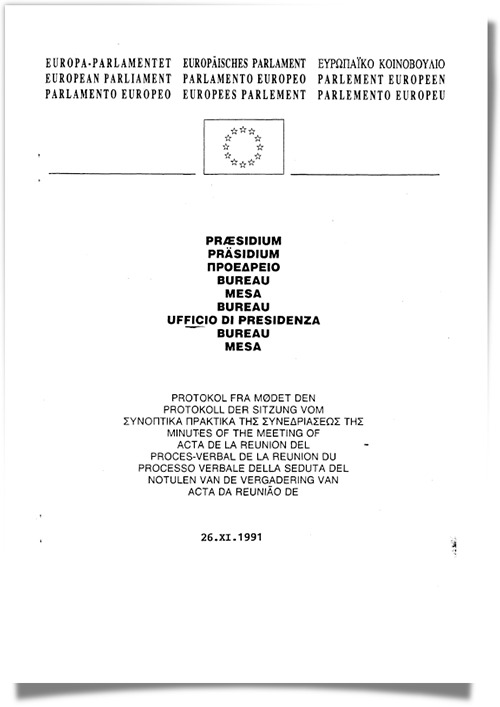Since the early days of the European Community, the buildings policy, and therefore the question of the Parliament's seat, has invoked the passions and interests of the Member States, and especially of France and Luxembourg.
The Council decided in 1965 that the Secretariat and officials of the European Parliament should be based in Luxembourg, while the committees and political groups should sit for three weeks in Brussels, with the fourth week devoted to the plenary session in Strasbourg.
The Members of Parliament were severely short of space and most of them had to share their offices. As early as 1988, under the presidency of Lord Plumb, solutions were sought to find space: part of the D1 building (the Spaak building) in Brussels was rented.
 Outside view of Headquarters of the European Parliament in Brussels © European Union, 2015 - Source: European Parliament. Paul-Henri Spaak building: © Association des Architectes du CIC: Vanden Bossche sprl, CRV s.A., CD
Outside view of Headquarters of the European Parliament in Brussels © European Union, 2015 - Source: European Parliament. Paul-Henri Spaak building: © Association des Architectes du CIC: Vanden Bossche sprl, CRV s.A., CD
The College of Quaestors submitted a proposal to the Bureau of the Parliament to rent a European Space in Brussels as part of this reflection on real estate policy. Thus, on 14 March 1990, an agreement was reached within the Bureau of the Parliament thanks to the favourable vote, for the first time, of the French Vice-Presidents.
The Bureau decided that:
1. As regards Brussels:
— to instruct the President and the Secretary-General to arrange for the rental of buildings D1, D2 and D3 in order to ensure the availability of 2 600 offices and 30 conference rooms in total in a homogeneous complex which meets the functional requirements of the Institution;
— to relinquish, as these buildings become available, those buildings currently occupied by the Parliament which are no longer needed;
— to instruct the President and the Secretary-General to arrange for the availability, for special or additional part-sessions of Parliament, of the large 750-seat conference room currently under construction in building Dl;
2. As regards Strasbourg:
— to confirm the rental of building IPE 3, which will entail an increase in the number of offices available from 1 440 to 1 606 and in the number of conference rooms from 18 to 24 by 1993;
— to instruct the President and the Secretary-General to enter into negotiations with the competent authorities with a view to the prompt construction and the rental of 300 additional offices and a chamber capable of seating 750 Members for all ordinary part-sessions of Parliament;
Following this, a working group on the Institution's building policy was set up by decision of the Bureau on 3 April 1990 in order to ensure the follow-up of this decision and to report periodically to the Bureau on the progress of this dossier. At its meeting on 26 November 1991, the Bureau received the conclusions of the working group, which were adopted unanimously, and took note of them:
1. Brussels (...) From a legal point of view, the Working Party had opted for a long-term lease with option to purchase, a solution which would enable Parliament to apply for exemption from the property tax. (...)[the Bureau] decided, therefore, to approve the Working Party’s proposals and to authorize the President to sign the lease once the Working Party had reached the conclusion that the four outstanding matters had been satisfactorily settled, it being understood that, should difficulties arise, the question would be referred to the Bureau.
2. Strasbourg (...) [the Bureau] asked, the Working Party, in conclusion to draw up a letter from the President to Mrs Trautmann, Mayor of Strasbourg, confirming Parliament’s wish to conclude the IPE IV contract promptly

Thus, in the twilight of President Enrique Barón Crespo's term of office, he validated a very important decision for the European Parliament. It was both a financial decision, with a significant cost for the Parliament's budget, but also political because, in the minds of many MEPs, this decision made Brussels, thanks to this new set of premises, the main place of work and therefore the seat of the European Parliament.